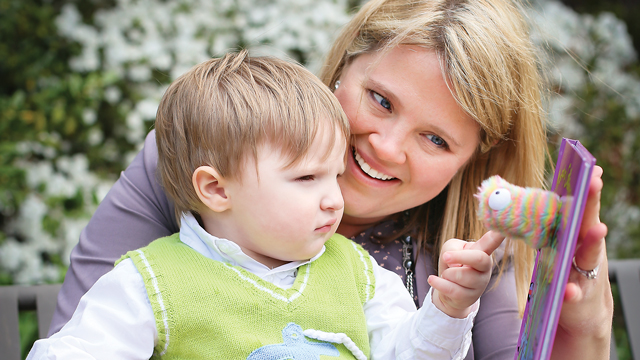When I had my first baby, my husband and I had recently moved far away from our families. As you might imagine, I desperately needed some mom friends. Joining a new moms’ support group at the local hospital proved vital to my survival that first year. During those meetings, I got out of the house and enjoyed adult conversation while learning how to deal with all-consuming newborn issues. A handful of us even formed a small playgroup and met weekly until our kids started preschool. For a couple of hours each week, our kids played while we compared notes, vented our frustrations, and felt reassured that we weren’t alone. Although our kids have entered tweendom and several of us have moved away, we still have an unbreakable bond from having supported one another through early motherhood.
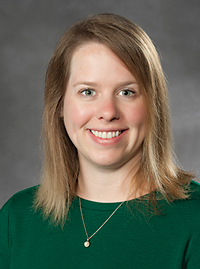
During those early years, for some moms, receiving support means learning how to deal with the typical challenges of sleep, tantrums, and milestones. Ellen Negus, MSW, has worked as a clinical social worker in the Neonatal ICU at Children’s Hospital of Richmond at VCU for the past two years. In that role, she runs a support group for families with babies born in the NICU to help them cope with the struggles of caring for their preemies. “Being around parents going through the same experiences,” she explained, “provides support no other discipline can.”
Richmond hosts numerous moms’ groups, from Mothers of Preschoolers (MOPS) to Mothers and More. Moms whose schedules prohibit in-person meetings can also access helpful advice through Richmond Moms Blog (RMB), an online support group with daily content from local women. According to Becca Campbell, RMB contributor and project coordinator, “It doesn’t matter if you are a single mom, tattoo mom, religious mom, homemaker mom, or corporate mom – we are a platform and community that supports each other.”
Although moms’ groups that cast a wide net provide a valuable service, sometimes kids and families face more specific challenges. “It can feel isolating whenever you have a child experiencing chronic illness, learning challenges, or developmental transitions,” Ellen said. When that happens, we all need support from others who have been there and understand. Fortunately, several Richmond-area support groups provide parents with the specific help needed as their children grow and develop.
Project: Just Like You
Molly Korte, who lives in Midlothian with her family, participated in groups like MOPS when her first two children were little. Her participation dropped off, however, when she had her third child, Jacob, and her parenting changed course. As Jacob grew, he did not reach the many developmental milestones his older sisters had mastered easily. At eighteenth months, he didn’t speak or walk, and he often engaged in repetitive behaviors. Several tests confirmed Molly’s suspicion that Jacob had autism, which kicked off an all-consuming therapy schedule.
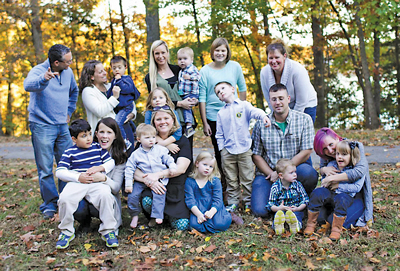
Although Molly expected Jacob’s diagnosis, she felt unprepared for the journey. The world she had previously inhabited no longer provided the support she needed. Molly felt disconnected. “We live in the world of the polished,” she said. “This is the walk of the raw.” During those first months, she couldn’t share the rawness with other parents whose lives seemed so polished in comparison. “They could empathize,” she explained. “But they couldn’t really understand.”
Late last summer, Molly heard a local autism advocate discuss the importance of focusing on kids’ strengths. The talk inspired Molly, and soon after, she launched Project: Just Like You. Each day on Facebook and Instagram, Molly spotlights a child with special needs from around the world. She shares the child’s diagnosis story as well as pictures of the child doing what they love. Together the text and images convey that kids with special needs are more than a disability or disease.
Richmond mom Shannon Davis experienced the benefits of Project: Just Like You when Molly profiled her son Joshua, who has type 1 diabetes. “Getting his story out there helps to clear up misconceptions about what type 1 is and isn’t,” said Shannon. “It helps for parents and other kids to see that Joshua is just like their child in lots of ways. Her project is opening people’s eyes to being more educated, more accepting, and more loving to all these amazing kids!”
Since the start of Project: Just Like You, Molly has worked tirelessly to form partnerships with local organizations, including Special Olympics Virginia, Miracles in Motion, the Friendship Circle of Virginia, the Greater Richmond ARC, Richmond Mom Prom, and United Athletics. Holly Claytor, director of public relations for Special Olympics Virginia, explained why she wanted to collaborate with Molly: “Project: Just Like You asks us to be open, warm, and kind to everyone – no matter our differences. If we took the time to hear someone’s story, even for a moment, we’d all be better off.”
Nearly every day, Molly continues to spread the word locally and globally about the wonderful kids who make up this digital support group. She has also met with members of the Virginia General Assembly to advocate for early intervention services. As Molly works toward approval on nonprofit status for Project: Just Like You, she hopes to offer RVA moms a place to meet in person and strengthen this network of support.
Decoding Dyslexia
Another Richmond-area mom, Rebecca Warner, also launched a local support and advocacy group. Rebecca’s husband has dyslexia, so it’s not surprising that one of her sons, Fox, also has it. Dyslexia, after all, has a strong genetic component. Half of kids with a dyslexic parent have dyslexia themselves.
As Rebecca began navigating the challenges of interacting with teachers, coaching her son to learn his letters, and helping him build self-confidence, she felt she needed support from others who had been through it. “I wanted to have everyone who knows about dyslexia on speed dial,” she said.
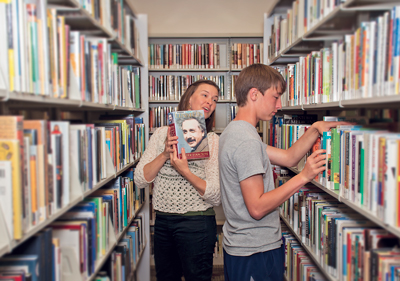
In 2012, she worked toward that goal when she started the Virginia chapter of Decoding Dyslexia, a national collective of parent-led grassroots groups around the country. Decoding Dyslexia provides support to parents in part through regular monthly meetings. During these meetings, notable speakers, like the Department of Education’s dyslexia specialist, talk about issues facing parents, including how the dyslexic brain works, how to resolve disputes with the school system, how to create successful individualized education plans (IEPs), and how to access the accommodations schools can provide. Decoding Dyslexia Virginia also offers a website with helpful suggestions about IEPs, stories about people’s experiences with dyslexia, and information about bills currently under consideration in the legislature.
After the presentations, parents share their experiences. Rebecca described one meeting when a grandmother came to the group crying because of her grandchild’s frustration. The other members were able to reassure her and let her know everything would be okay because they had also been through it.
That is a key benefit of support groups. “Meeting with others in similar situations helps families process what they’re going through. Other parents can provide coping skills they’ve used that have worked,” said Ellen from VCU.
The information shared in the support group for families whose kids have dyslexia has been invaluable to Rebecca. “I first heard about the New Community School through the group,” she said, “and that has made our lives much better.”
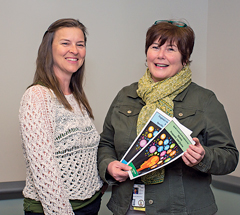
Because dyslexia is inherited, many of the group’s parent members have struggled with dyslexia themselves. As Rebecca explained, the Decoding Dyslexia group has as much of an impact on adult dyslexics like her husband as it does on the kids. When he and many of the other parents attended school, people didn’t understand the inner workings of a dyslexic brain or the benefits of a dyslexic mind. “The meetings help us turn the lens back on ourselves,” Rebecca explained. “Learning more about how dyslexics think has even helped my marriage. I now better understand how
my husband approaches the world.”
While the meetings are an important part of the organization, Decoding Dyslexia is pragmatic in its focus on advocacy, speaking frequently with representatives to pass bills that ultimately help teachers, students, and families. Last year, for instance, they helped pass HB 842, a bill that requires teachers seeking initial licensure or renewal of a license to undergo awareness training developed by the Department of Education. This training provides information on the indicators of dyslexia, as well as evidence-based interventions and accommodations. Most recently, Decoding Dyslexia parents worked to pass HB 2395, a bill requiring a reading specialist (in each local school that already has a reading specialist) to be trained to identify dyslexia and provide interventions or accommodations.
Parents, Families, and Friends of Lesbians and Gays
Another national support group that has a Richmond chapter is PFLAG (Parents, Families, and Friends of Lesbians and Gays). A support, education, and advocacy group for lesbian, gay, bisexual, and transgender people and their families, PFLAG was founded in 1972 by a mother in Texas who wanted to support her gay son. PFLAG has had a Richmond chapter for more than twenty years, and has served many area families.
Karen Steele first became involved with PFLAG seven years ago when her child came out as transgender. She worried specifically about him being bullied, and appreciated having support from others who had gone through it. “It’s helpful to talk to people going through the journey,” Karen explained. “Some people went through it twenty years ago, but stick around to help others.”
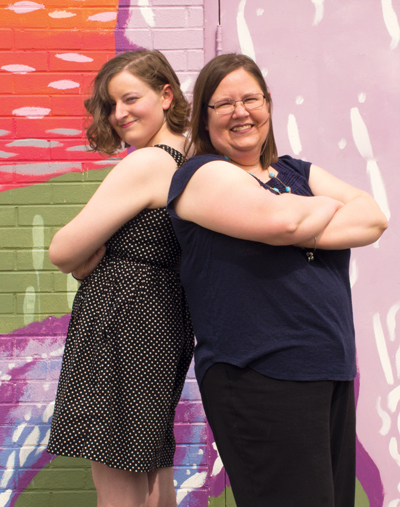
Beth Cox also joined when her oldest child came out as transgender several years ago. She had heard about the group which meets at Side by Side in Richmond once a month at the same time as the teen support group. “One month,” she said, “I finally got up the courage to try it out.” Now she serves PFLAG’s Richmond chapter as a board member. For Beth, the chance to talk to others going through similar experiences is invaluable: “It’s a place where there’s no judgment. We talk about things only other people in the LGBT community would be able to talk about together.”
The group meets once a month and hosts speakers, including gay and transgender adults, psychologists, college coordinators, law enforcement members, and others. Beth particularly appreciates speakers from local schools who help parents learn how to better advocate for their children within the school system. PFLAG also stays involved in numerous community events, like the Richmond Pride Festival, Transgender Day of Remembrance, and the groups, Diversity Richmond and Equality Virginia.
Karen stressed that PFLAG helps serve any family members and friends who are interested in supporting their kids. “Families who come [to meetings] are behind their kids. Some are uncomfortable, but they love their kids and just want to help,” said Karen. “No one wishes this for their kids because of the discrimination and challenges gay and transgender people face.”
Both Beth and Karen said many of the group discussions revolve around the topic of religion as parents struggle to reconcile their faith and their love for their children. The support group provides a safe space to have these kinds of important conversations with other parents who understand.
Karen, whose young adult child no longer lives in the area, emphasized that as society has become more accepting, she wonders if the support group is still needed. “But then new people come,” Karen added, “and we feel like, ‘yes, we’re still needed.’” Beth agreed that PFLAG maintains its relevance: “It keeps me going knowing there is a lot of education to be done. We help people know their kids are going to be okay, and we help them in any way we can,” said Beth.
No matter what challenges we face, parenthood is an amazing, sometimes painful, and often wonderful journey. None of us can do it alone. Meeting with other parents provides a much-needed opportunity to talk through the issues we face and connect with others going through similar experiences.
“Support groups can normalize a parent’s experience,” Ellen explained. “And when families who have been through a challenge come back to share their experiences, they provide other parents with peace of mind.” That’s certainly something we can all use a lot more of as we strive to raise our children to become well-adjusted, capable, and kind adults.


